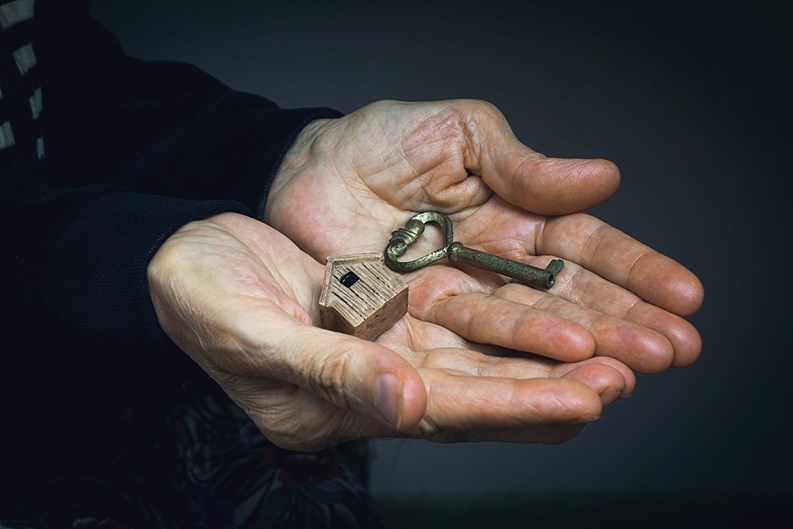Picture this: at some point, your parents would like to move out of the co-op or condo apartment in the city that they’ve owned for decades and now want to live out their remaining years at their Columbia County single-family home in upstate New York. They want to give the apartment to you as their heir. The question is can you inherit that unit from your folks in the same way you could for the upstate home? The answer is yes, but it’s complicated. Then again, anything involving real estate in New York City usually is.
Is It Real Estate?
Like all privately-owned, fee-simple real estate, the house in Columbia County is in fact real estate. It can be easily passed from parent to child, or to anyone else for that matter. What’s required is a will that clearly states who inherits the ownership of the property. A condominium unit is not far from that, since they are real estate, too.
If owned jointly with a spouse, real estate can pass directly upon the death of one joint owner to another. In the case of a condominium passing from parent(s) to a child(ren), the transfer of ownership, particularly in the case where there is a will, is also a relatively easy and painless process.
The one unique question in a condominium is whether the condominium association’s usual “right of first refusal” is enforceable in cases of inheritance rights. The “right of first refusal” is the condominium association’s legal recourse in cases where the board--as the elected representative of the association membership--is unhappy about a potential unit sale. In the event a board exercises its “right of first refusal,” they can offer to purchase the unit at a comparable price, rather than accept the unit owner’s purchaser.
“Inheritance of a condominium unit is like a private home, and not subject to the right of first refusal,” says Phyllis Weisberg, a co-op and condo attorney with Montgomery McCracken Walker Rhoads, which has offices in New York, New Jersey, Pennsylvania, and Delaware.
And Then There Are Co-ops...
As with just about everything, co-op apartments are different. First of all, they’re not real estate. The cooperator owns shares in a corporation that owns the property. “Co-op shares are personal property,” says Weisberg. The shareholder does not own the apartment but rather has a proprietary lease for their individual apartment. And as is the case with most issues in a co-op, the inheritability of the shares depends on the specific co-op’s governing documents.
“If the shares are jointly held by a spouse,” explains Weisberg, “the transfer is easy.” That’s not necessarily the case for inheriting children or others. “In most co-ops, the board has the right to approve purchases," she adds, "Many proprietary leases accept surviving spouses. Some permit other family members, provided the person is financially able to meet the monthly obligations. Case law is split. Does the lease trump the will or does the will trump the lease? Most co-ops will ask the inheriting individual for an application and interview. If the co-op board turns someone down, that person will need to sell and will get the money from the sale. The co-op doesn’t deprive you of your inheritance.”
Mark Hakim, an attorney for the firm of Chaves & Perlowitz in Ronkonkoma, concurs that “inheriting co-op shares doesn’t automatically give you the right to live there. You have to know the terms in your proprietary lease.” It depends on the documents.
What If There’s No Will?
In the event a cooperator dies, and there’s no surviving spouse and will, Weisberg explains that an administrator is appointed. One result of not leaving a will, or dying intestate, is that the co-op shares--or the condominium unit for that matter--could result in a kinship proceeding. According to the website of New York attorney Jules Martin Haas, a kinship proceeding results when no one steps forth "to probate or administer an estate or the closest living relative is a cousin or more distant kin," to determine inheritance rights. So having a will makes things a lot easier.
Another unpleasant situation can arise when there are battling heirs. In a co-op or condo, someone has to continue making monthly maintenance or common charge payments until the will is settled or the unit is sold. In the event of non-payment, “a co-op will sue,” says Weisberg, which can ultimately result in an eviction proceeding and lose of the proprietary lease.
What the Board Requires
Most of the time, co-op boards will request the inheritor of the shares to submit the same financial package as any potential new owner or purchaser. After that, requirements differ substantially from building to building. A board might require the inheritor to live in the apartment, prohibiting subletting. They are interested in owner occupants, not investors.
In one case described in a New York Times article, a co-op board required that the inheritor of a unit to sell another co-op he owned and to live in the unit, to approve the transfer. In some cases, if the board determines the inheritor is not financially capable of carrying the unit, they may approve the transfer of the shares but not approve residency, which would force the individual to sell. A board can refuse you as a resident but they can’t deprive you of value of your inheritance.
Another potential pitfall, explains Hakim, “is when you buy an apartment from an estate, you must be certain the seller has the right to sell. What too many people fail to get is the New York State release of lien (form ET117). The New York State release of lien confirms that the shares from the estate are free from New York State taxes.” So, Hakim adds, “get your nuts and bolts in order.”
To get your nuts and bolts in order when it comes to inheritance matters, speak to an estate planner or accountant and read your documents.
AJ Sidransky is a staff writer at The Cooperator and a published novelist.







9 Comments
Leave a Comment